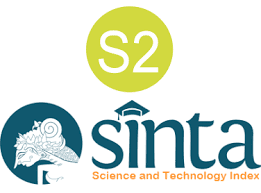South Korean Government’s Role in Public Diplomacy: A Case Study of the Korean Wave Boom
Abstract
Korean wave has became a current booming popular culture; reaching all continents of the world. This phenomenon is the result of cooperation from various actors, namely state and non-state actors. This paper aims to determine the role of the South Korean government in the accomplishments achieved by the Korean wave to date, by studying the literature that focuses on the Korean wave success. This paper concludes that the South Korean government acts as a stimulator, regulator and facility provider for the cultural industry to develop. While the success of the Korean wave in penetrating the world market is the result of the formulation of strategies and promotions conducted by non-state actors involved in the process of producing the Korean wave.
Full Text:
PDFReferences
BBC, BTS : Who are they and how did they become so successful?, view online https://www.bbc.co.uk/newsround/45721656, 5 Oktober 2018, 20 :10
Berridge, G.R, Diplomacy : Theory and Practice, Palgrave Macmillan, New York 2010
Chang, I.C, “Descendants’s Actor Invites You Into Story of Korea”, Koreanet, 26 Mqy 2016, view online 10 Oktober 2018, http://www.korea.net/NewsFocus/Culture/view?articleId=134793
Cho, Yun Young, “Public Diplomacy and South Korea’s Strategies”, The Korean Journal of International Studies, Vol. 10, No.2 (Dec 2012), pp.275-296
Choi, Dae Yong and Kim, Pan Suk, “Promoting a Policy Initiative for Nation Branding : The Case of South Korea”, Journal of Comparative Asian Development 13:2, 2014, pp.346-368
Cull, N. J, Public Diplomacy: Lessons from the Past. California: FIGUEROA PRES,2009
Diplomatic Whitepaper of South Korea, 2016
Effendi, Tonny Dian, “K-Pop and J-Pop Influences to University Students in Malang, East Java—Indonesia : A Comparative Public Diplomacy Studies” Andalas Journal of International Studies, Vol.1 No.2, 2012, pp.182-196
Emilia, Ranny, Praktek Diplomasi, Baduose Media, 2013
Gunjoo, Jang dan Won K. Paik, “Korean wave as Tool for Korea’s New Cultural Diplomacy”, Advances in Applied Sociology, 2012. Vol.2, No.3, 196-202
Hankyoreh, Full text of Lee’s inaugural speech, view online http://english.hani.co.kr/arti/english_edition/e_national/271850.html 6 Oktober 2018, 9:29
Istad, Felicia, “A Strategic Approach to Public Diplomacy in South Korea” in Kadir Ayhan (ed), Korea’s Public Diplomacy , Seoul, Korea : Hangang Network
John, Jojin V, “Globalization, National Identity and Foreign Policy : Understanding “Global Korea”, The Copenhagen Journal of Asian Studies 33(2), 2015, 38-57
Jung, Sun dan Shim, Doobo, “Social distribution : K-pop fan practices in Indonesia dan the ‘Gangnam Style’ phenomenon”, International Journal of Cultural Studies Vol 17(5), 2014, 485-501
Krasnyak, Olga,2017, Evolution of Korea's Public Diplomacy, USC Center on Public Diplomacy, https://uscpublicdiplomacy.org/blog/evolution-koreas-public-diplomacy, viewed 1 June 2018, 12:23 WIB
Korean Cultural Center http://id.korean-culture.org/id/6/contents/341
Lee, Sook-jong, “Korea’s Public Diplomacy Needs Better Coordination and Strategies, Korea Focus, 13 Jannuary 2015, view online 10 Oktober 2018 http://www.koreafocus.or.kr/design2/layout/content_print.asp?group_id=105736
Milia, Jana, “Indonesia Dipengaruhi oleh Korean wave juga loh!”. Kompasiana, view online https://www.kompasiana.com/milimilia/552883046ea83405718b456b/indonesia-juga-dipengaruhi-korean-wave-loh
08.2018
Nye, “Public Diplomacy and Soft Power”, Annals of the American Academy of Political and Social Science, Vol. 616, PublicDiplomacy in a Changing World Mar., 2008, pp. 94-109, p.94
Rana, Kishan R, 21st Century Diplomacy : A Practicioner’s Guide, Continuum, London, 2011
Savitri, Yulia, Korean culture event in Palembang draws thousands of K-pop fans, The Jakarta Post, view online http://www.thejakartapost.com/life/2018/08/13/korean-culture-event-in-palembang-draws-thousands-of-k-pop-fans.html , 5 Oktober 2018, 19:28
Son, J.A, “Descendants of the Sun Heads to 32 countries”, Koreanet 4 April 2016 view online 10 Oktober 2018 http://www.korea.net/NewsFocus/Culture/view?articleId=134818
Seung-Ho Kwon $ Joseph Kim (2014), “The Cultural Industry Policies of the Korean government and the Korean wave”, Intenational Journal of Cultural Policy 20:4, 422-439, 2014
Shim, Doboo, “The Growth of Korean Cultural Industries and the Korean wave” in Chua BH and Iwabuchi K (eds) (2008) East Asian Pop Culture: Analysing the Korean wave. Hong Kong: Hong Kong University Press.
Sohn, Jiae, 2017, “Content producers lead Korean wave”, Korea.net http://www.korea.net/NewsFocus/Culture/view?articleId=134924 view online 1 June 2018, 14:32
Sisario, Ben, BTS Becomes the First K-Pop Act to Top Billboard Album Chart, the New York Times, 28 May 2018, view online https://www.nytimes.com/2018/05/28/arts/music/bts-no-1-billboard.html , 5 Oktober 2018, 19:12 Wib
Sharp, Paul, “Revolutionary States, Outlaw Regimes and the Techniques of Public Diplomacy” dalam Melissen (eds), The New Public Diplomacy : Soft Power in International Relations, Palgrave macmillan, 2005
Suryani, Ni Putu Elvina, Korena wave sebagai instrument soft power untuk Memperoleh Keuntungan Ekonomi Korea Selatan, “Global Vol. 16 No.1 Mei 2014
The Economist, Bubbly pop, view online https://www.economist.com/banyan/2012/10/02/bubbly-pop, 5 Oktober 2018, 20:19
Universitas Nasional, “King Sejong Institute Akan Menjadi Pusat Studi Korea di Jakarta” , 18 Juli 2017, view online 11 Oktober 2018 https://www.unas.ac.id/berita/king-sejong-institute-akan-menjadi-pusat-studi-korea-di-jakarta/
Website Kementerian Luar Negeri Korea Selatan http://www.mofa.go.kr/eng/wpge/m_5474/contents.do
.
Refbacks
- There are currently no refbacks.










